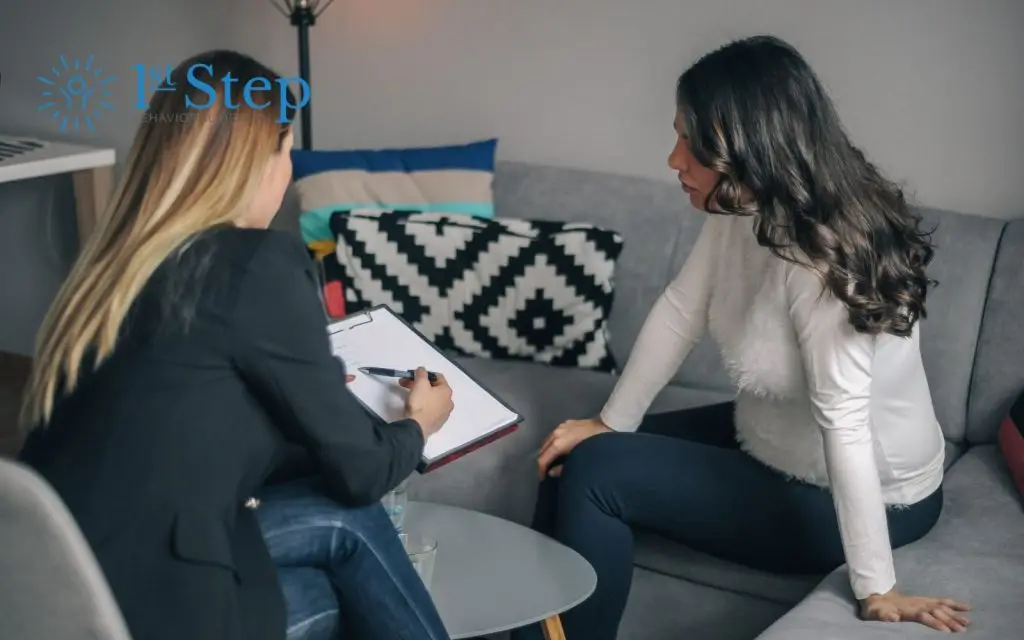Opioids like Vicodin can be highly addictive and nearly impossible to quit. Part of the reason why quitting is so challenging is because of the withdrawal symptoms that occur when individuals suddenly stop taking Vicodin cold turkey.
The best way to detox from Vicodin and get sober is to seek professional help. This article explores what to expect at a Vicodin detox program in Pompano Beach. You will learn:
- How Vicodin abuse leads to dependence and withdrawal
- About the symptoms of Vicodin withdrawal
- What to expect during detox
- How to get started with First Step Behavioral Health
What is Vicodin?
Vicodin is a prescription pain medication that contains a combination of hydrocodone, an opioid, and acetaminophen, a non-opioid pain reliever. It’s used to treat moderate to severe pain.
Hydrocodone is a narcotic that works by changing the way the brain and nervous system respond to pain. Acetaminophen is a common over-the-counter pain reliever and fever reducer, which also enhances the effects of hydrocodone.
Vicodin is typically prescribed for short-term pain relief, such as after surgery or injury, but prolonged use increases the risk of addiction. It can be highly addictive because hydrocodone is an opioid that can quickly lead to physical dependence and misuse if not taken as prescribed.
Understanding Vicodin Abuse and Dependence
Vicodin abuse typically happens when people misuse the drug, either for its euphoric effects or to self-medicate beyond pain management. Prescription drug misuse can include:
- Taking more than prescribed or using someone else’s prescription.
- Crushing and snorting the pills or dissolving them in water to inject, seeking a more immediate and intense effect.
- Using it to relax, get high, or cope with stress, anxiety, or emotional pain, rather than for legitimate pain relief.
Over time, abuse escalates, and people begin using the drug more frequently and in higher doses. Eventually, dependence develops.
Dependence develops when the body adapts to the presence of hydrocodone, leading to tolerance and withdrawal symptoms if use is reduced or stopped. This means the body requires Vicodin just to function normally. Dependence doesn’t necessarily mean addiction, but it can lead to it.
When the body becomes dependent on Vicodin, stopping or reducing it suddenly can lead to withdrawal symptoms such as:
- Anxiety or irritability
- Muscle aches
- Sweating or chills
- Runny nose
- Nausea, vomiting, or diarrhea
- Restlessness or insomnia
- Cravings for Vicodin
Vicodin withdrawal is not life-threatening, but it can be difficult to get through without medical support.
Vicodin Detox Programs: What to Expect During Treatment
If you’re struggling with Vicodin dependence or addiction, a detox program is often the first step toward recovery. Medical detox helps manage withdrawal symptoms and prepares you for ongoing treatment. Here’s what you can expect during a Vicodin detox program in Pompano Beach, Florida.
Clinical Assessment
Detox treatment starts with a clinical assessment, where medical professionals evaluate your physical and mental health. This includes looking at your medical history, substance use patterns, and any co-occurring mental health issues like anxiety or depression.
A thorough assessment helps the detox team know what to expect in regard to your withdrawal process and how to support you during it. They’ll ask questions about how long you’ve been using Vicodin, how much you take, and if you’ve tried to stop before.
Medical Stabilization and Withdrawal Management
Withdrawal from Vicodin can be uncomfortable, with symptoms like anxiety, muscle aches, nausea, and insomnia. In a detox program, doctors and nurses monitor you closely and may provide medications to help ease these symptoms. These medications can help reduce cravings and make withdrawal more bearable.
The goal during this phase of detox is to keep you as comfortable and safe as possible while your body detoxes from Vicodin. Medical stabilization ensures that any potential complications are addressed immediately, as well.
Therapeutic Support
During your time in a Vicodin detox program, you’ll receive extensive therapeutic support in the form of counseling or therapy sessions. Therapists can help you deal with the emotional challenges that often come with detox, such as anxiety, mood swings, or feelings of hopelessness. This kind of support is crucial because it helps you start addressing the underlying reasons for your Vicodin use, even before you begin a more intensive treatment program.
Treatment Planning
Detox is just the first step in recovery, and once you’ve stabilized, the focus shifts to planning your long-term treatment. Before you finish detoxing, a case manager or therapist will work with you to develop a plan that addresses your unique situation.
This might include:
- Transitioning to an inpatient or outpatient rehab program.
- Continuing with individual or group therapy.
- Medication-assisted treatment if needed.
- Setting goals for maintaining sobriety and improving your overall health.
Start Your Recovery at our Vicodin Detox Center in Pompano Beach, FL Today
If you’re ready to take control of your life and overcome Vicodin addiction, our drug and alcohol detox center in Pompano Beach is here to help. We offer a supportive, medically supervised environment where you can safely detox and begin your journey toward recovery.
At First Step Behavioral Health, you’ll receive personalized care tailored to your unique needs. Our team of experienced professionals will guide you through the detox process, helping manage withdrawal symptoms and providing emotional and therapeutic support along the way. After detox, we’ll work with you to create a plan for ongoing treatment and long-term recovery.
Don’t wait to take the first step. Contact us today to get started with a confidential, risk-free assessment.
References:
- U.S. Food and Drug Administration (FDA): Vicodin
- National Institute of Health (NIH): Opioid Withdrawal
Jump to a Section
Call (855) 425-4846
